In her latest work, the artist asks: “What does ecological grief look like? What does it mean to carry our psychological encumbrances through the world?”
As the impacts of climate change become more apparent on Martha’s Vineyard and around the world, artist Cindy Kane has stayed grounded by tending her backyard garden, walking with friends, and immersing herself in literature. Of all the books Kane has read in recent years, one title especially moved her: The Things They Carried, Tim O’Brien’s’ semi-autobiographical collection of Vietnam war stories. Not just the book, but the title itself. It percolated in her mind, bubbling to the surface again and again until finally, it triggered Kane’s latest body of work — a collection of painted suitcases called “Destination Unknown: Claiming the baggage of climate change.”
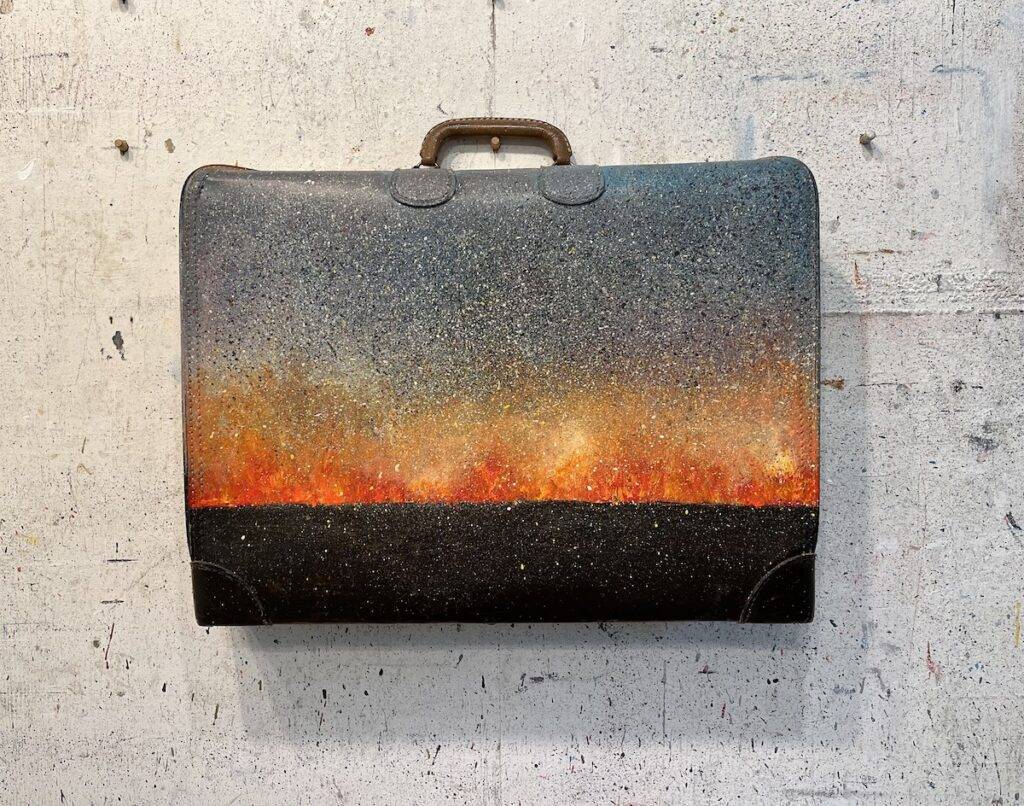
Kane credits her friend Polly Clive for the name of the work, but she credits O’Brien for catalyzing her exploration of baggage and what it means to carry our collective psychological encumbrances through the world. “I started thinking, what does ecological grief look like? What does it feel like?” Kane said. “As humans in this period of time, we carry so much. I think we carry a lot of shame about what we’re witnessing, the extinction of species that we love, the devastation of habitats that we love, and it’s playing out before our eyes … Suitcases, to me, are the quintessential representation of what we carry.”
The first suitcase Kane painted was sourced from a thrift shop. With a layer of gesso and a blaze of acrylic paints, its leather exterior transformed into a landscape of scorched earth, a horizon fringed with fire. That piece, Traveler 2020, will be part of Kane’s show at the Granary Gallery, which opened on July 31. Upon its completion, Kane envisioned even more suitcases, a grid of them arranged on a gallery wall, each individual painting a voice in a chorus that forewarns an uncertain — but nonetheless fraught — environmental future.
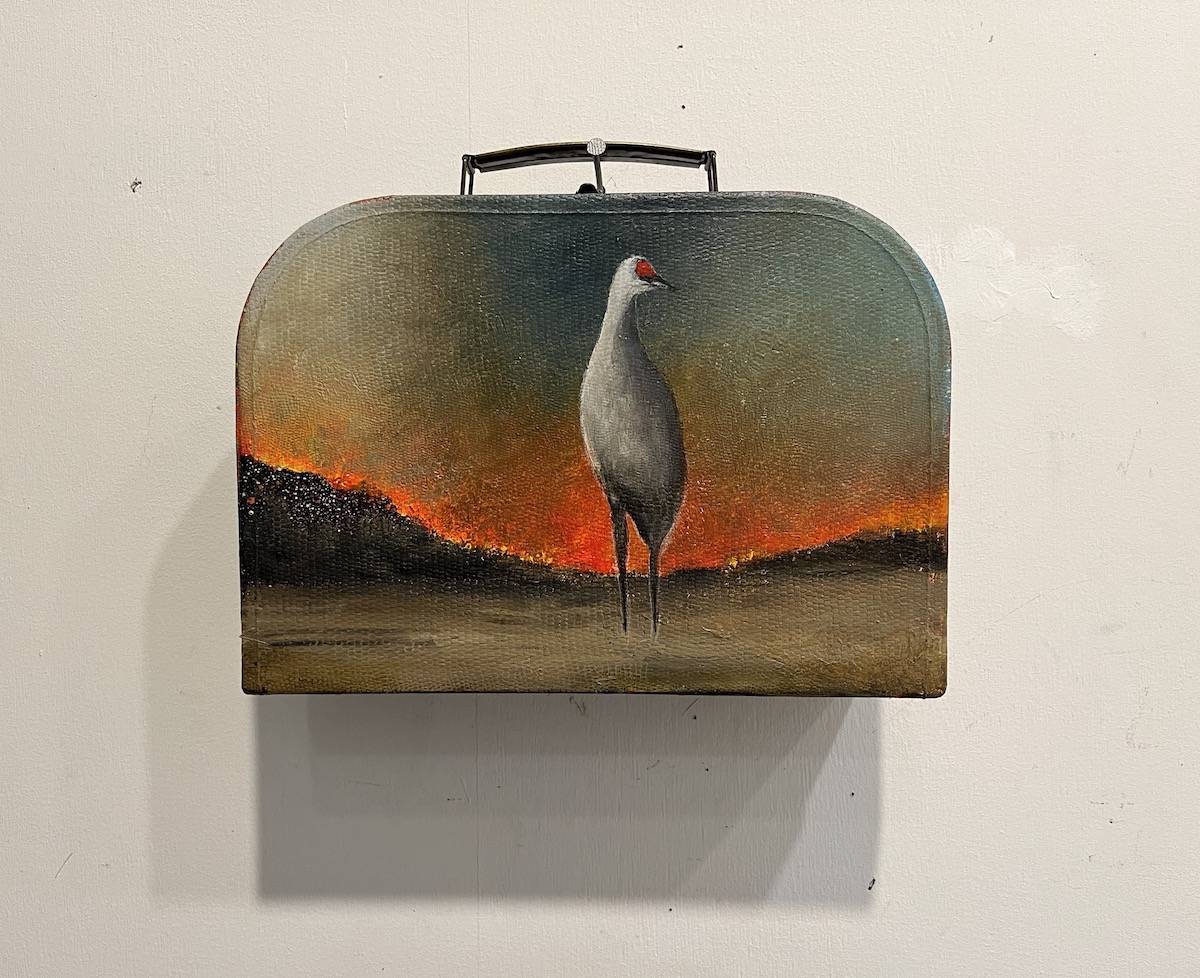
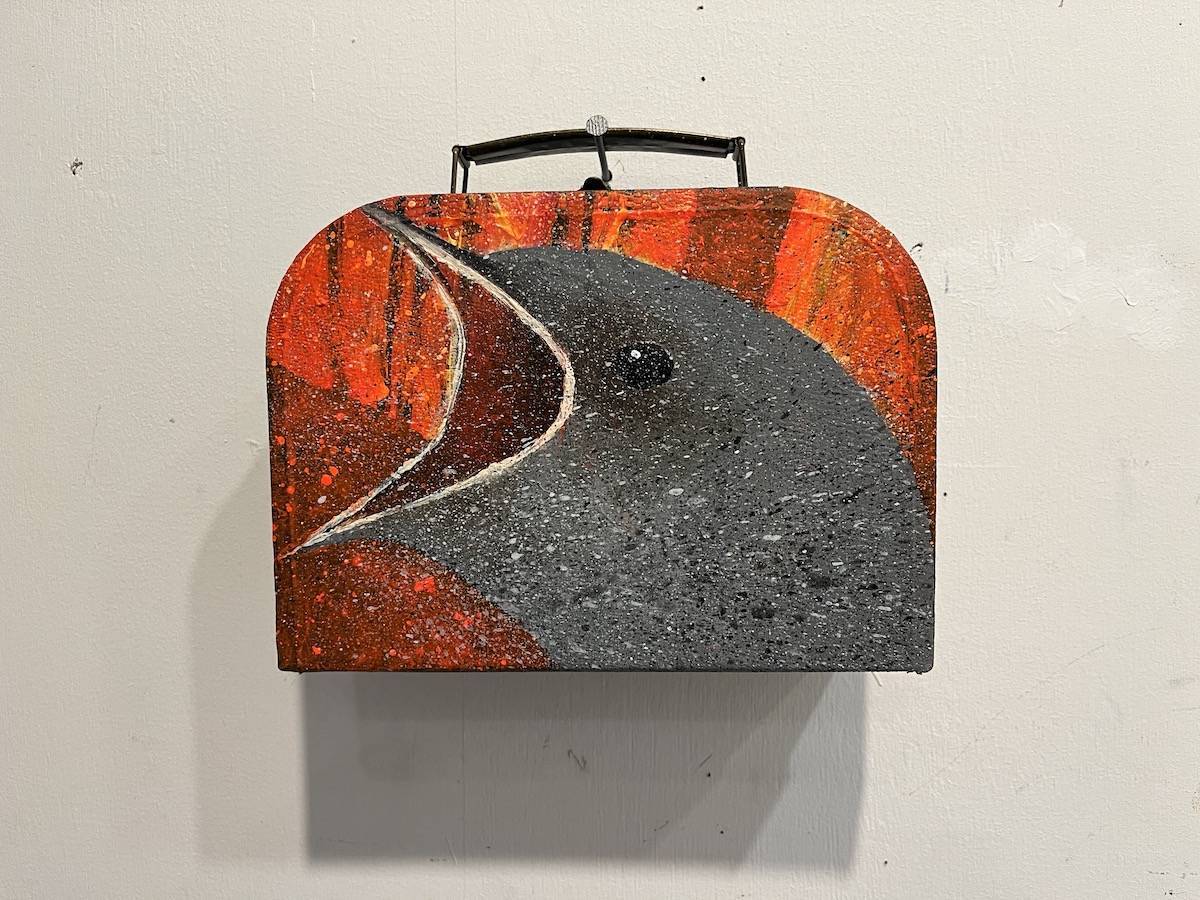
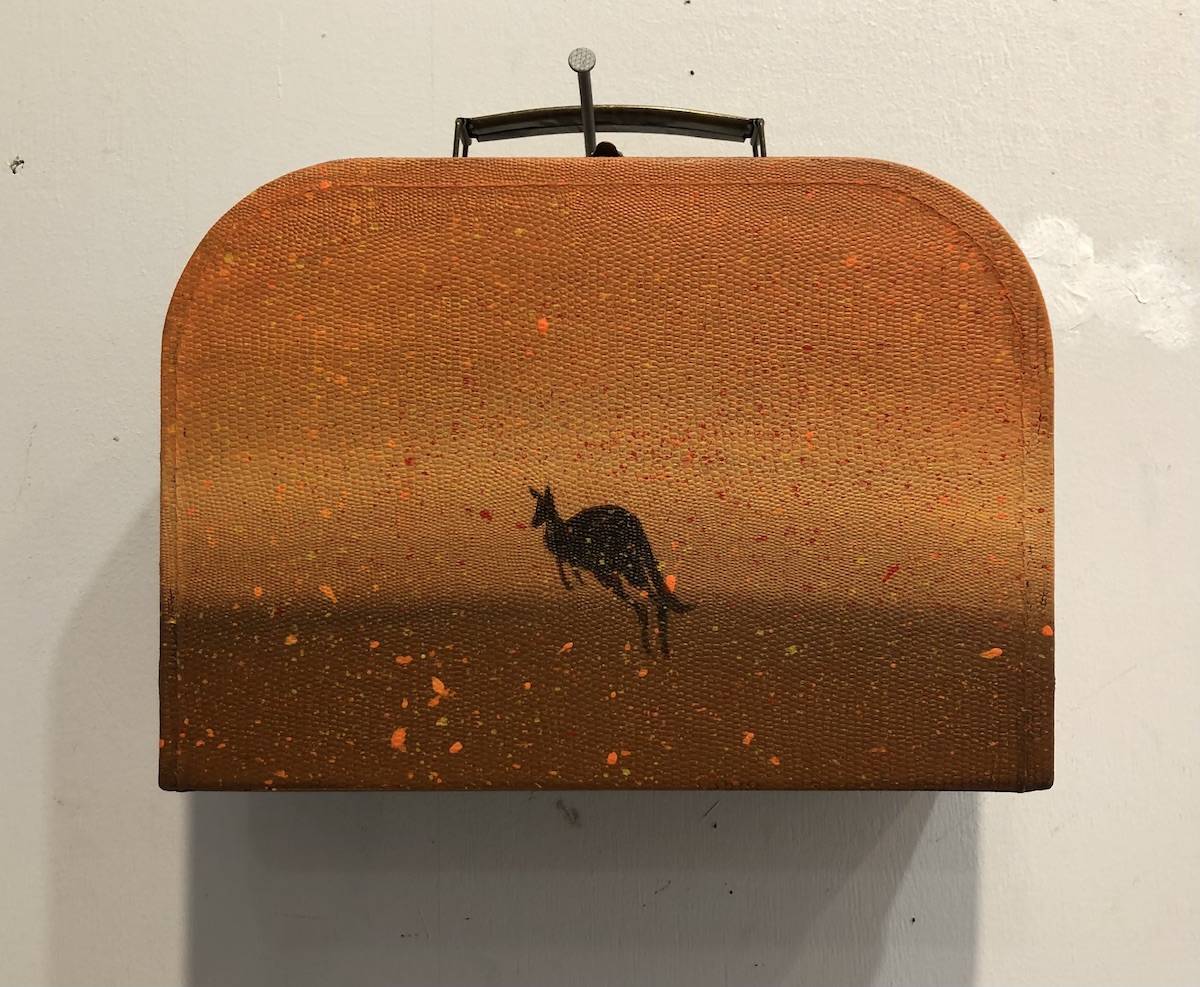
The suitcases depict landscapes overwrought with flames. Wildlife — birds and seals and kangaroos — howl against a sky of ash and ember, or else lie belly-up and still. Humans hold steadfast streams of water against the inferno, and where they cannot, they hang their heads and turn their backs to the heat. “I’m really trying to emulate what I see on the news, the photos on the front page of the newspapers,” Kane said. “I’m using symbols of what I see reflected in the news as one of the many faces of the installation. So we’re kind of looking at ourselves.”
In this mirror Kane has created, the viewer has a chance to process the guilt and the grief of climate change through the experience of looking. But as the title of the piece reminds us, a mirror is not necessarily a crystal ball. “It’s an unknown destiny,” Kane said. “We basically know where we’re headed. But we don’t know what’s going to happen.” In other words, there is still room, in that liminal space, for hope.
“We basically know where we’re headed. But we don’t know what’s going to happen.” In other words, there is still room, in that liminal space, for hope.
Given Kane’s professional history, it’s unsurprising that she gravitated toward O’Brien’s wartime opus. Her installation, The Helmet Project, integrated handwritten notes from war correspondents onto painted steel combat helmets. Kane’s commentary on our relationship with the natural world is also well documented. Her exhibit, Empty Skies, at the former marine hospital paid a funereal homage to 24 extinct birds. “I see all these as a continuum,” Kane said.
That’s all Kane hopes the piece does: continue the conversation, evoke “an ongoing internal dialogue” after viewers leave the exhibit. “I want them to think about it later, the way I think about that title, The Things They Carried,” Kane said. “I guess I could say that I would like the piece to be someone’s Tim O’Brien.”

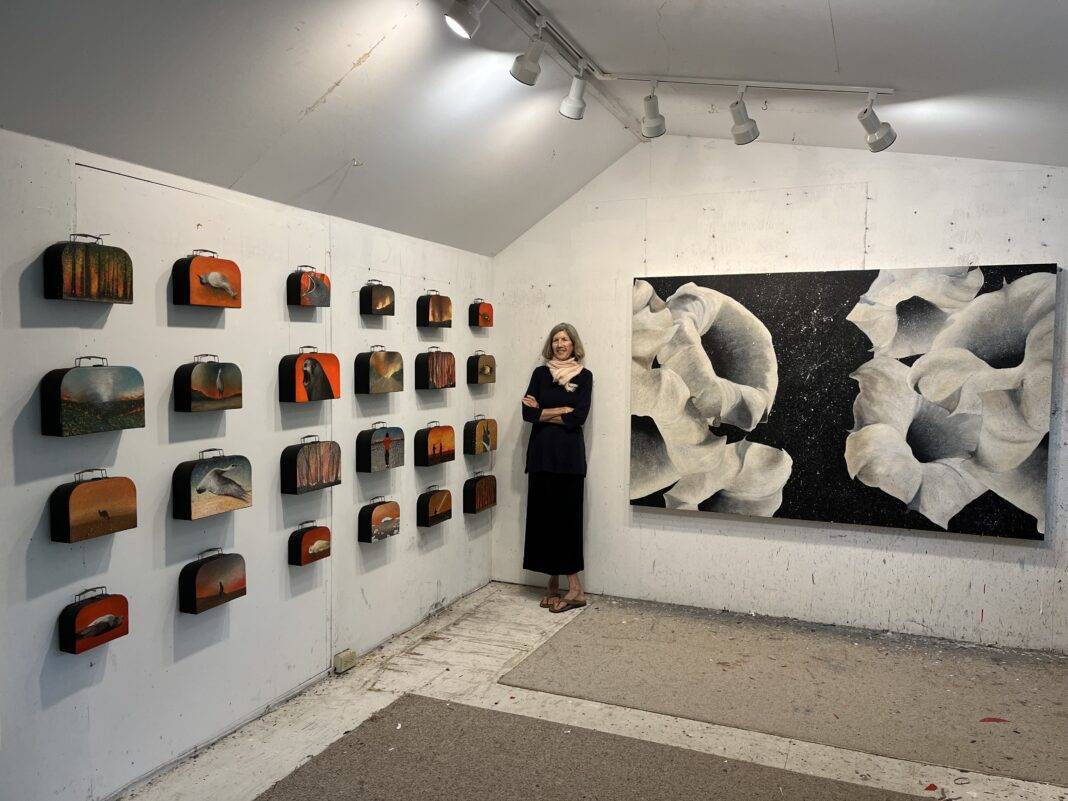
Beautiful and poignant work.
These steps will turn into strides, thanks
to the committed endeavors of such
artists, thinkers, doers….
Thank you.
E